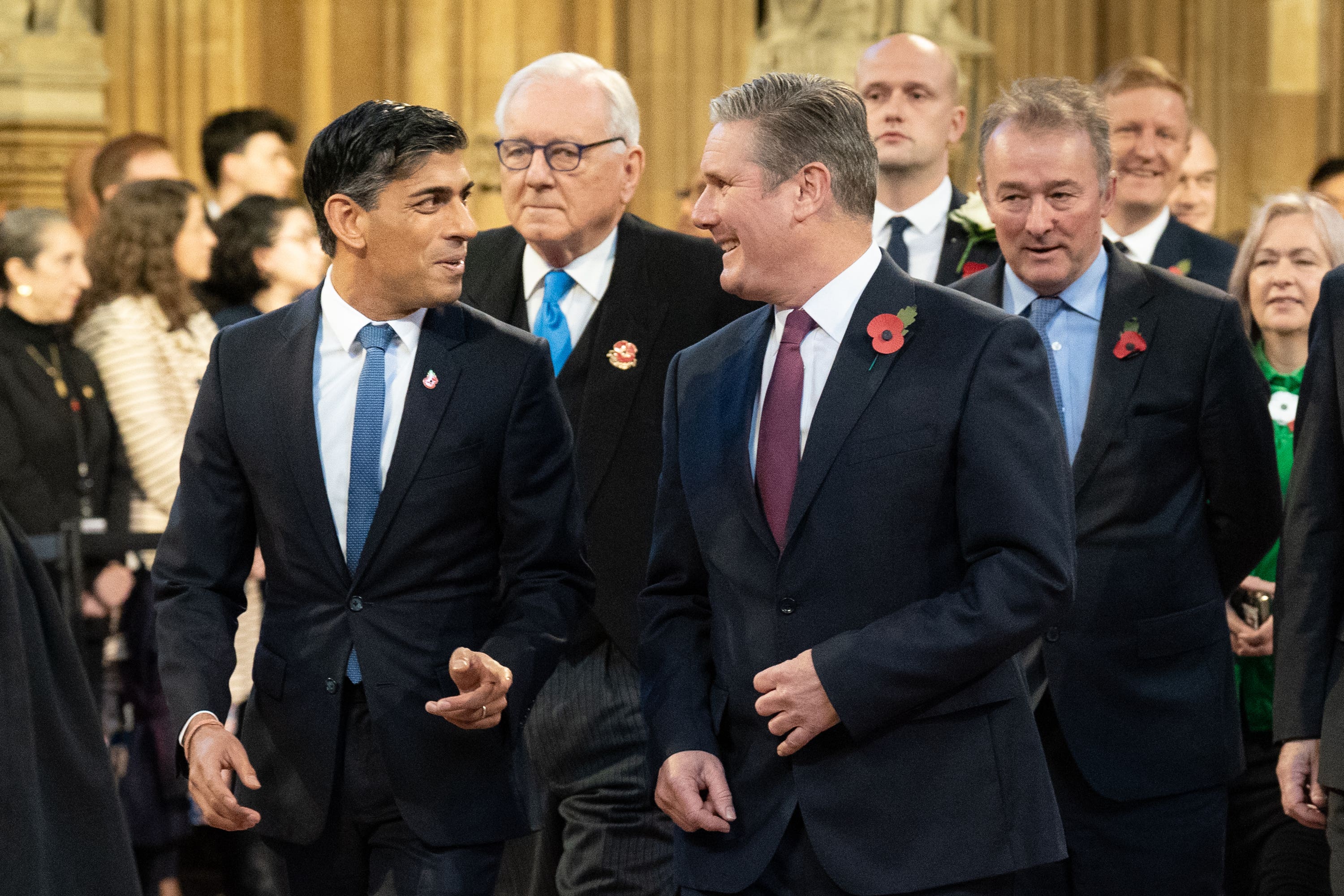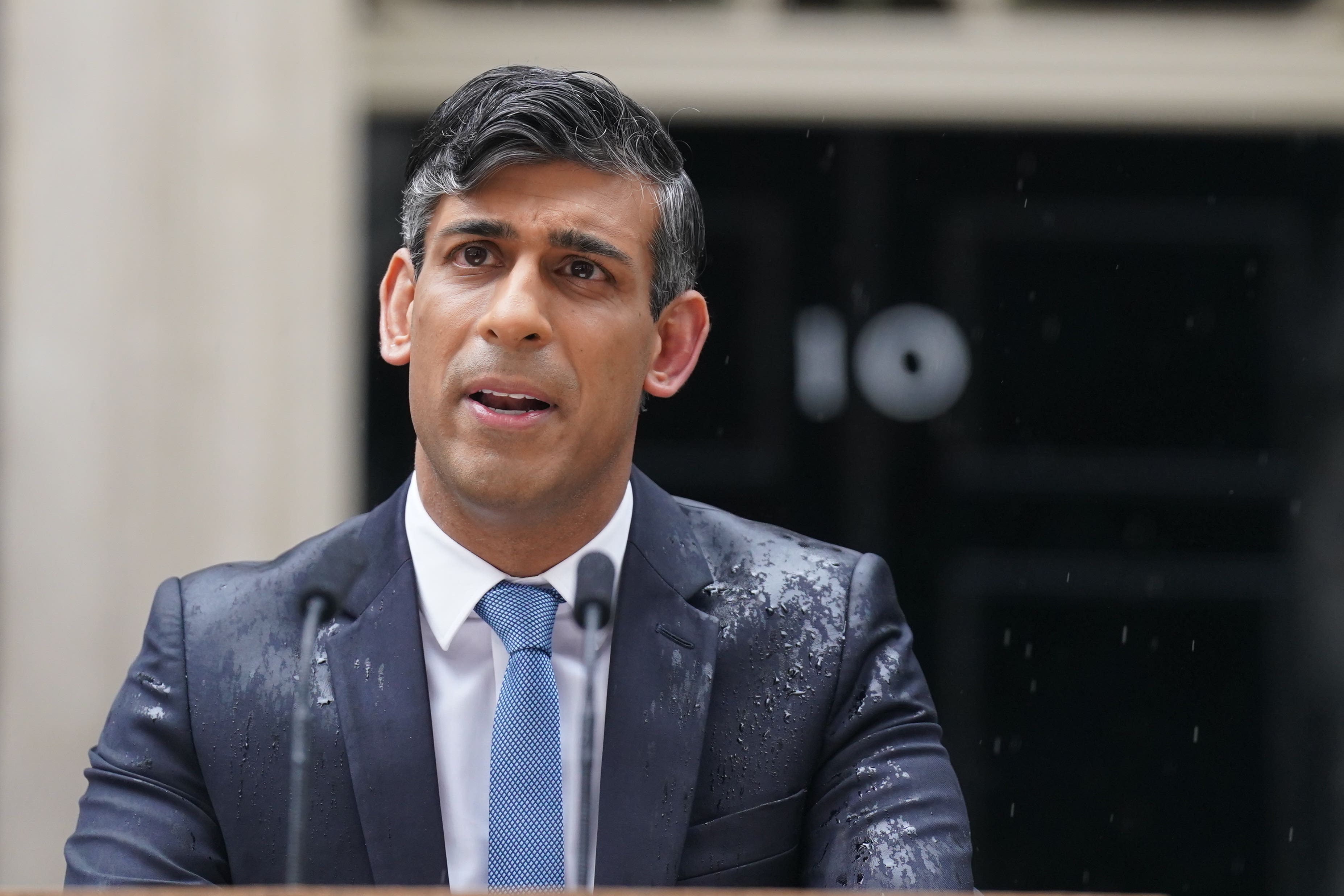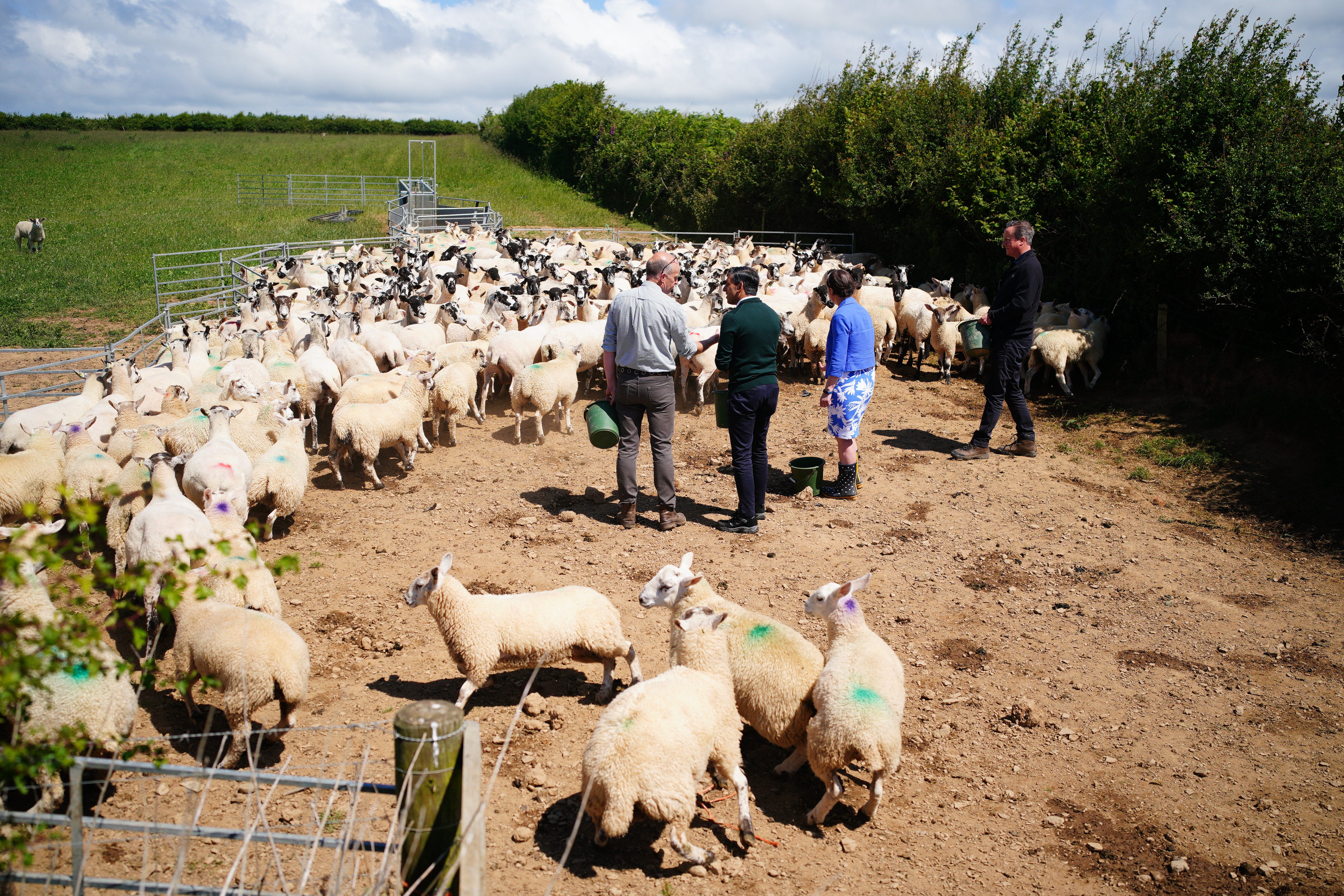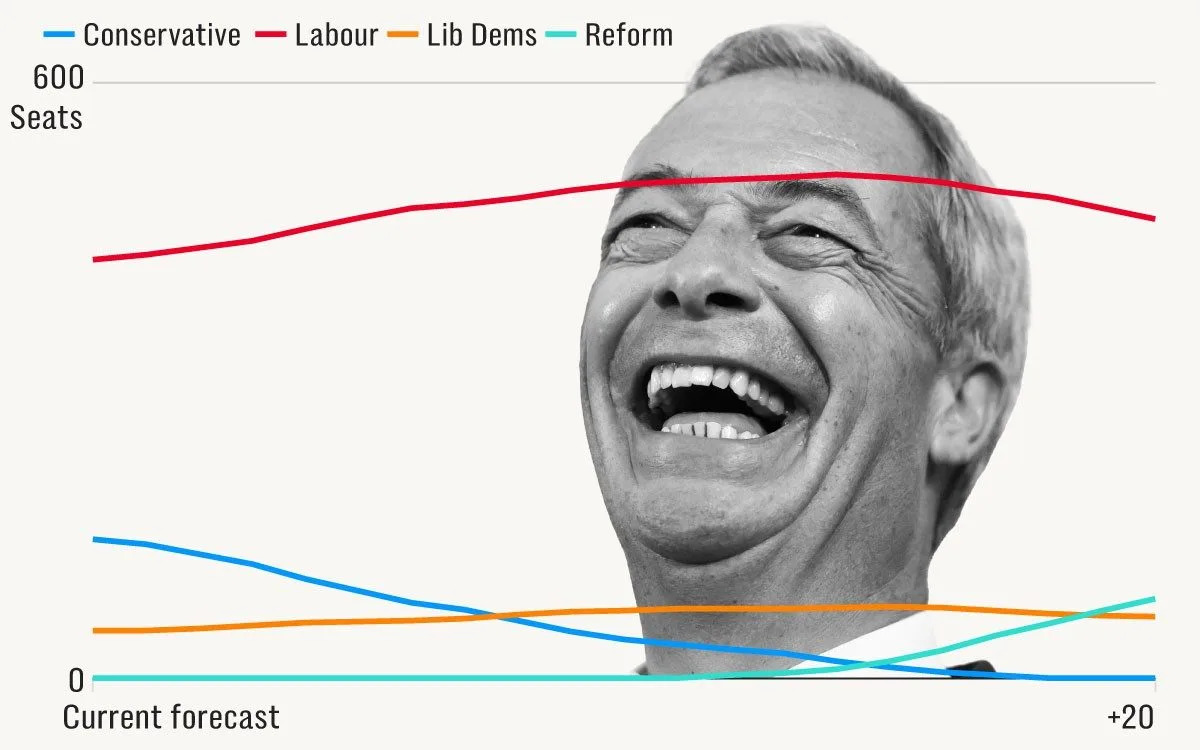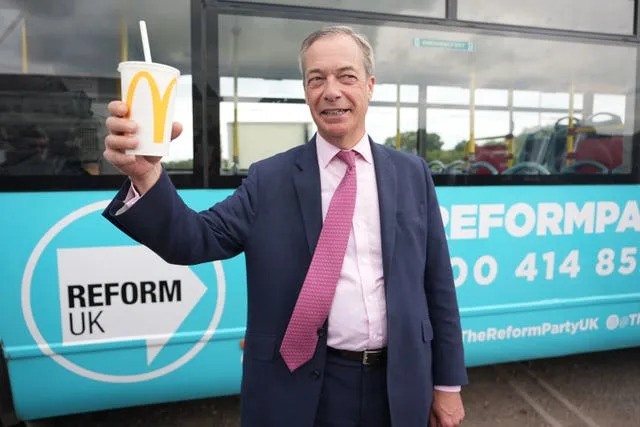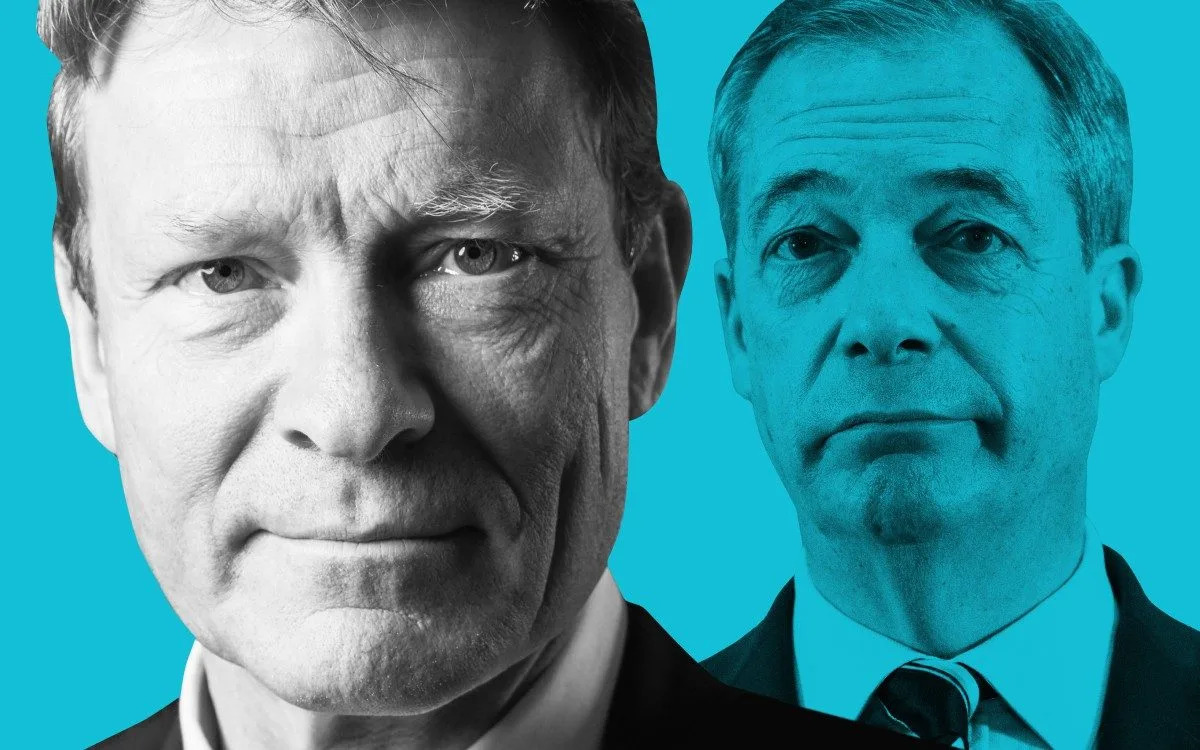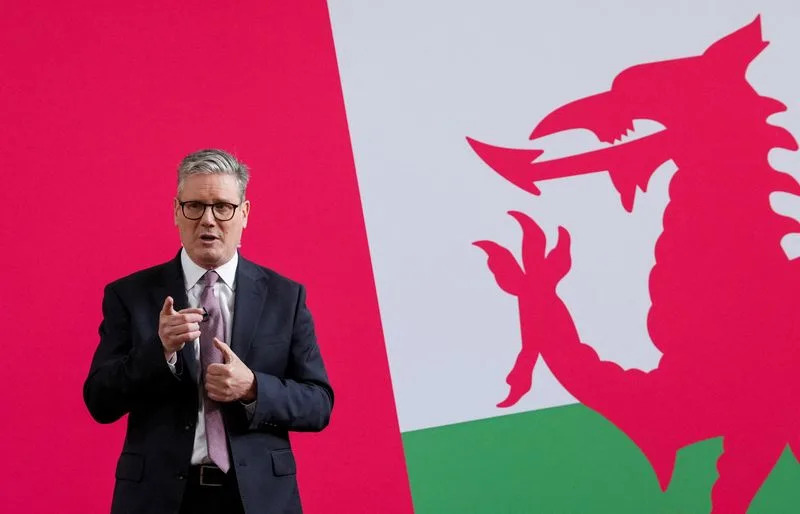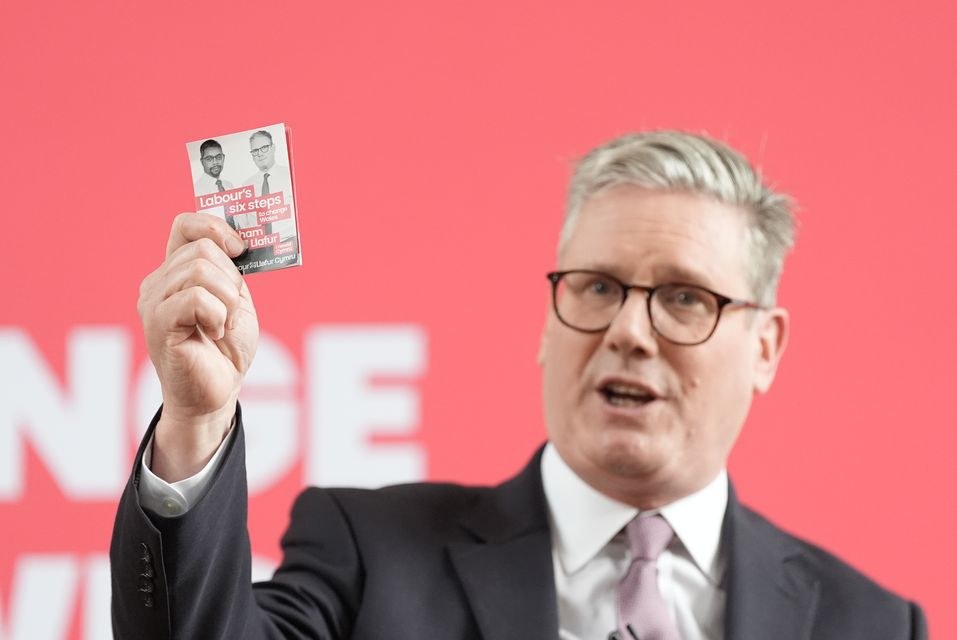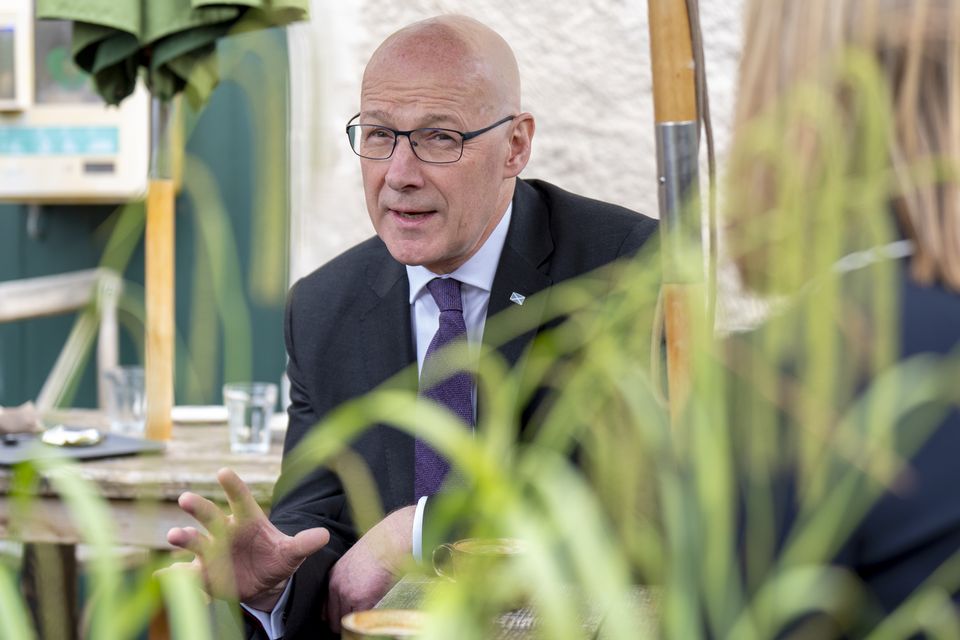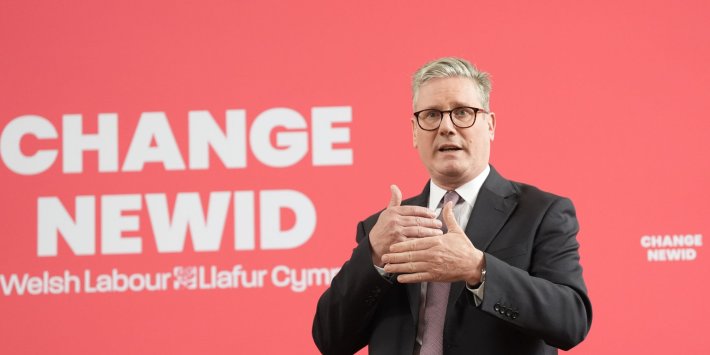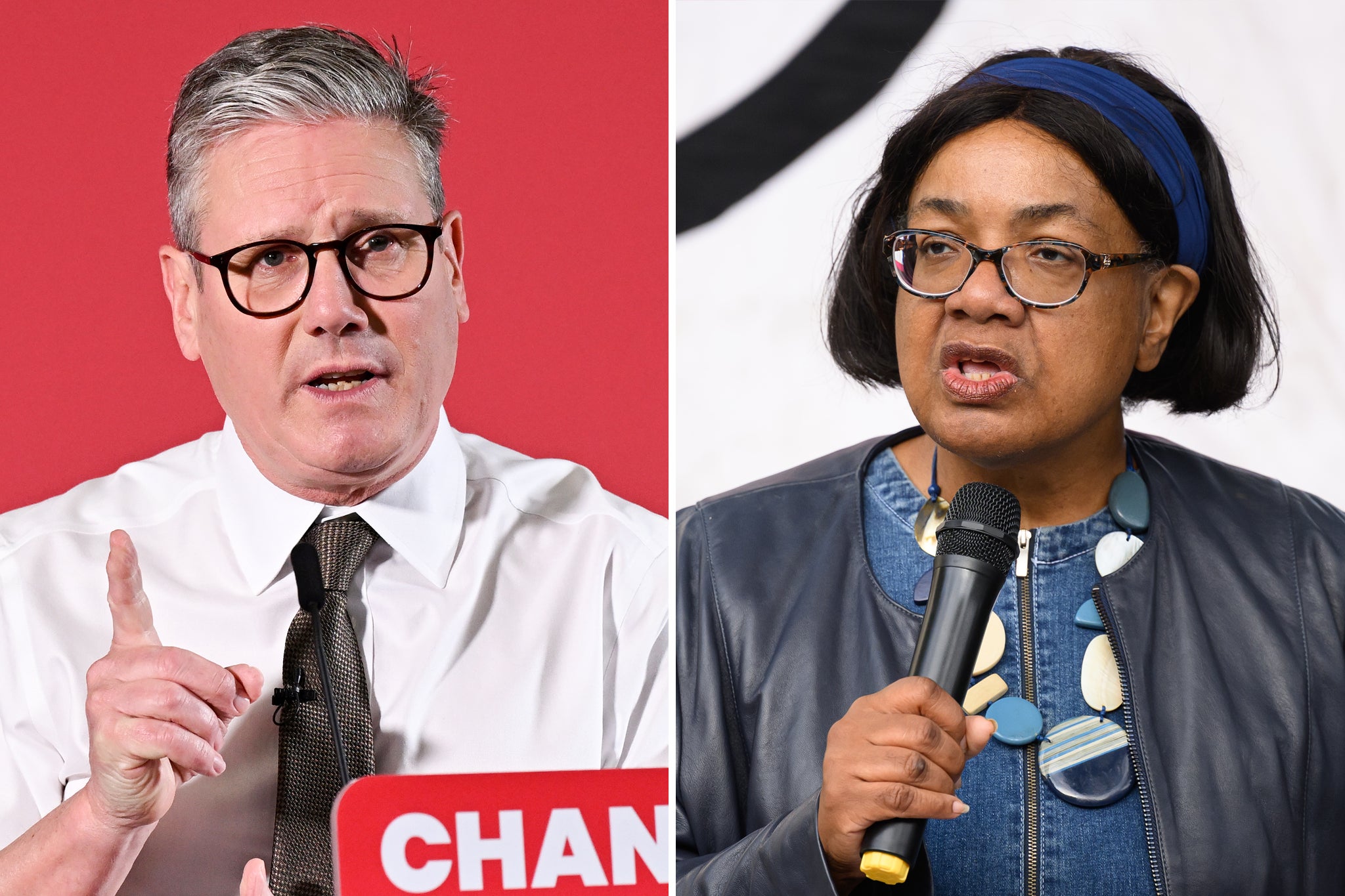The Labour leadership is disappointed by the way that the row over longtime MP Diane Abbott’s candidacy has become an “unwelcome distraction”, PoliticsHome understands.

After having the Labour whip withdrawn last year due to alleging that Irish people, Jewish people and Travellers do not experience racism "all their lives”, in comments for which she apologised, Abbott had the whip restored earlier this week.
But it was reported by The Times the same day that Abbott was being barred from standing for re-election. On Thursday, Labour leader Keir Starmer denied that the decision had been made to stop Abbott from being a Labour candidate, and deputy leader Angela Rayner went further. “I don’t see any reason why she can’t stand,” she said on Thursday.
Labour sources say there was a plan agreed that would see the leadership restore the whip and Abbott subsequently announce her retirement – but the briefing to The Times disrupted the arrangement.
A source close to the leadership said the row over Abbott was the result of “tragic miscommunication” and “macho” briefing, and it has become an “unwelcome distraction” during the election campaign.
Related

Local Figures Line Up To Succeed Diane Abbott As Labour Candidate
By Sienna Rodgers
29 May
"Nobody wants this – a load of internal focus – we want to get on with speeches in factories about employment rights," they added. "But in some ways it’s better to get it out of the way before nominations close."
Shadow cabinet member Peter Kyle hinted on Friday morning that Abbott would indeed be barred. “Diane Abbott was a trailblazer… This election, though, is about the future and the NEC will be making sure that our party is fit for the future,” he told the BBC.
The row over Abbott was fuelled further by the deselection on Wednesday of Faiza Shaheen, a left-wing candidate in Chingford and Woodford Green. She said she would be discussing “next steps” with her legal team.
Leadership-favoured Shama Tatler, a Brent councillor who had expressed an interest in the Queen’s Park and Maida Vale constituency, was swiftly chosen by Labour's national executive committee on Thursday to contest the seat.
Shaheen reacted to the news by tweeting: “Really?! Wow a Brent councillor with no history here at all. They would rather lose than have a left pro Palestine candidate. This is offensive to my community”.
There was also disquiet over the suspension of Lloyd Russell-Moyle, who was the incumbent candidate for Brighton Kemptown, following a complaint that was investigated by the party last weekend. He is no longer eligible to stand as a Labour candidate as there is not enough time to conclude the full investigation process before the candidate nominations deadline next week.
It was widely assumed the move against Russell-Moyle, who is on the party’s left, was a factionally motivated attack. However, the complaint against him is believed to have come from the left – specifically, someone who was removed from the Labour Party for antisemitism.
Russell-Moyle has described the complaint, which is about his behaviour eight years ago, as “vexatious and politically motivated”.
A Labour Party spokesperson said: "The Labour Party takes all complaints extremely seriously and they are fully investigated in line with our rules and procedures, and any appropriate disciplinary action is taken."
Chris Ward, a close friend of Starmer who worked as his aide for six years, has been chosen as Labour’s candidate for Brighton Kemptown.
Other Labour selections announced on Thursday include trade unionists – Unison's Mark Ferguson and Usdaw's Michael Wheeler, who are also NEC members, plus Community union's Kate Dearden – and NEC member Gurinder Singh Josan.
Former Starmer staffer Uma Kumaran was also made a candidate. All were chosen directly by NEC panels under emergency selection procedures.
Keir Starmer distances himself from Angela
Rayner in row over Diane Abbott
The Labour leader broke with Ms Rayner and declined to give a view on whether the veteran left-winger should be allowed to run as a Labour candidate
Sir Keir Starmer refused to say if he would like to see Diane Abbott stand
(Getty)
She heaped praise on Ms Abbott, describing her as an inspiration and a trailblazer. And Ms Rayner appeared to take aim at Sir Keir and his inner circle, stressing that she is “not happy” about negative briefings to newspapers about Ms Abbott from senior Labour sources.
“I don’t think that is how we should conduct ourselves,” she told ITV.
Asked by BBC Radio Scotland for his own view on whether Ms Abbott should be allowed to run for Labour on 4 July, Sir Keir said a decision would be made by the party’s ruling National Executive Committee (NEC).
"Diane Abbott has had the whip returned to her, no decision has been taken to bar her from standing and the NEC will come to a decision in due course," he said.
Asked if he would like her to be a candidate, Sir Keir added: "Ultimately, that will be a matter for the NEC but no decision has been taken."
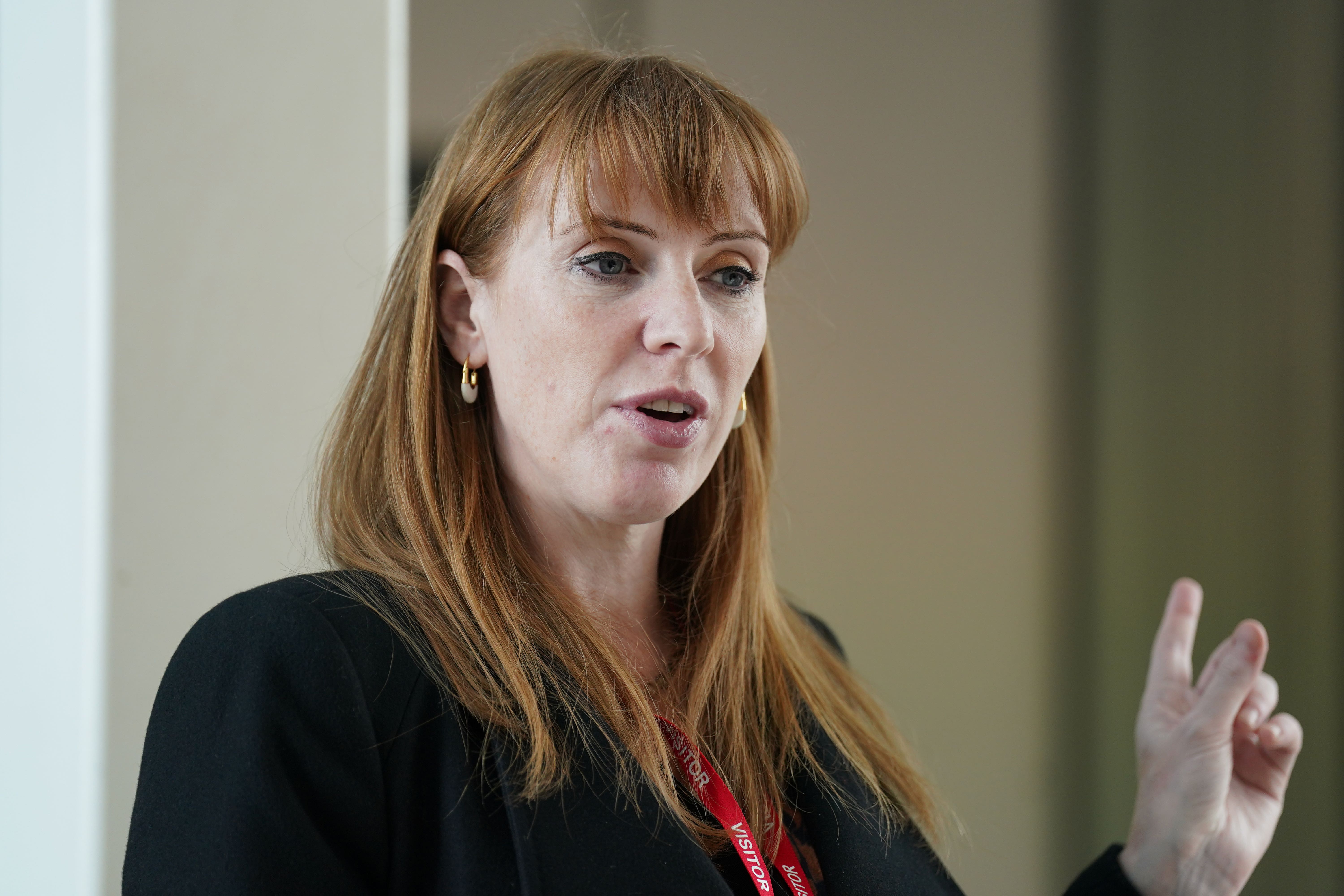
Labour Party deputy leader Angela Rayner has defended Diane Abbott (PA Wire)
He also praised the MP - the first Black woman to be elected to the Commons - as a "trailblazer".
Despite heaping praise on Ms Abbott, he refused to follow Ms Rayner in giving a personal view on whether he would like to see her continue as a Labour MP.
Ms Abbott was given the Labour whip back this week, but it was briefed out that she would be “barred” from running as a Labour candidate in the general election.
It had been suggested she was planning to retire, but at a rally in support of her on Wednesday Ms Abbott declared that she would stand for parliament again.
Unions have backed Ms Abbott, with TUC president Matt Wrack warning against double standards being applied.
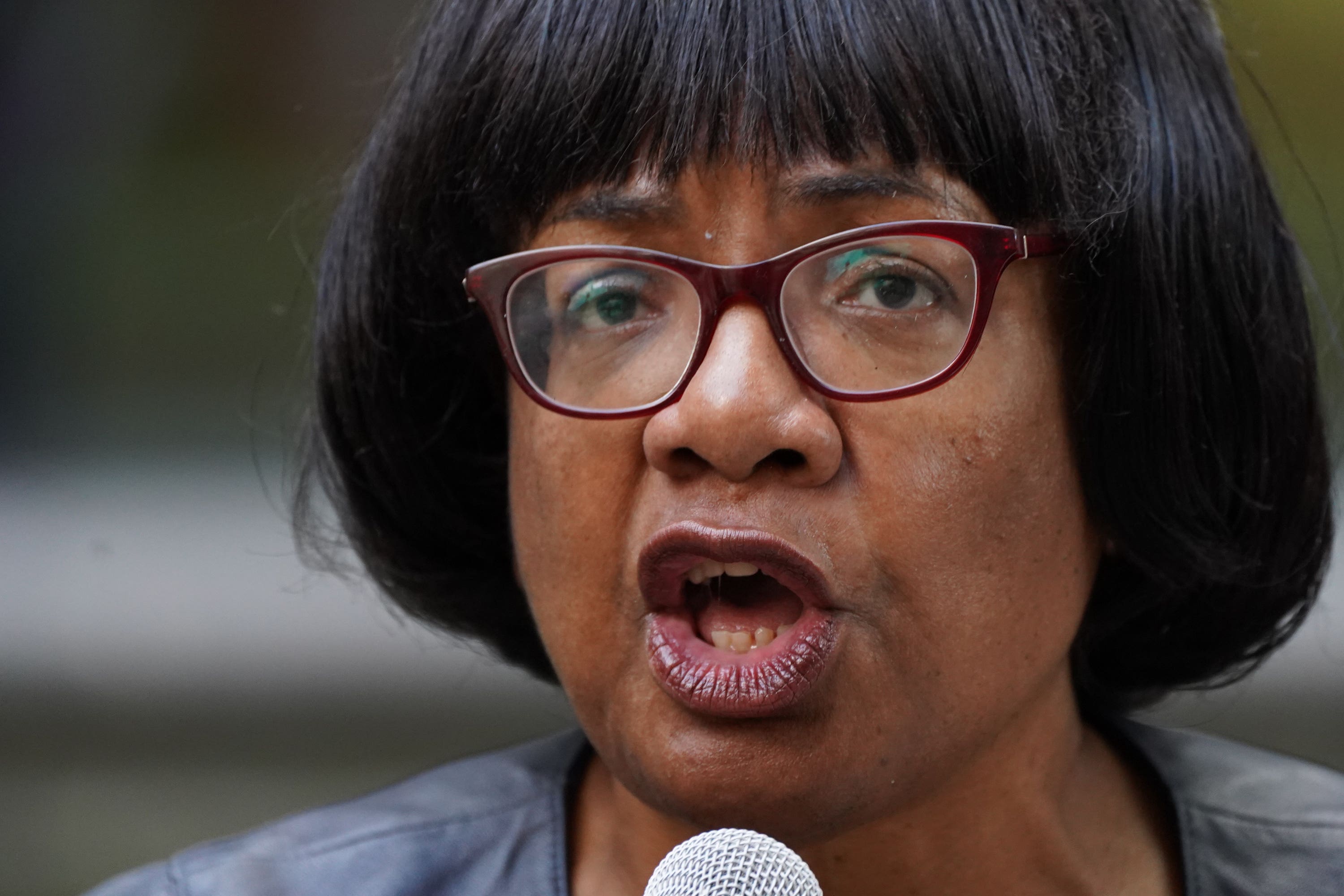
Ms Abbott had the Labour whip returned this week (PA Wire)
Mr Wrack, who is also the Fire Brigades Union general secretary, said: “Diane Abbott is a powerful, popular advocate for Labour. She and other candidates have been treated in an appalling manner.
“There are clearly double standards in how they have been treated as left-wingers and as women of colour when compared to more centrist MPs.”
Ms Abbott said on Thursday she has met with leading trade unionists who have offered her their backing to be a Labour candidate at a meeting next week of Labour’s NEC.
The deadline for the party to rubber stamp its general election candidates is 4 June

“There are clearly double standards in how they have been treated as left wingers and as women of colour when compared to more centrist MPs.”
Matt Wrack, Fire Brigades Union General Secretary
In recent days, there have been conflicting reports about the status of Diane Abbott as a parliamentary candidate. Other left wing Labour candidates have also reportedly been barred from running.
Matt Wrack, Fire Brigades Union general secretary, said:
“After 14 years of austerity, misery and chaos, people are sick of the Tories. Now is the time for Labour to unite to sweep them from power.
“Diane Abbott is a powerful, popular advocate for Labour. She and other candidates have been treated in an appalling manner.
“There are clearly double standards in how they have been treated as left wingers and as women of colour when compared to more centrist MPs. It is only a matter of weeks since hard-right Tory Natalie Elphicke was welcomed with open arms.
“This has all been an embarrassing distraction. The Labour leadership must now act decisively to reinstate the affected candidates and ensure that no one is barred from standing at the last minute with no due process.”

“The idea that Diane Abbott should not also be permitted to stand as a Labour Party candidate in the forthcoming general election is unthinkable.”
Letter to Keir Starmer from Baroness Christine Blower & Lord John Hendy KC
By Matt Willgress, Labour Outlook
Two well-respected, decades-long labour movement campaigners who are current Labour members of the House of Lords have written to Keir Starmer to deliver in behalf of its signatories a petition in support of Diane Abbott. It has been signed by over 17,500 people from over 550 parliamentary constituencies.
The petition was initiated by the Labour Assembly Against Austerity and Arise – a Festival of Left Ideas.
Their letter reads as follows:
Dear Sir Keir,
We are writing to draw your attention to the fact that over 17,5000 people have now signed this petition in support of the PLP whip to be restored to Diane Abbott petition.
In light of this level of support, the idea that Diane Abbott should not also be permitted to stand as a Labour Party candidate in the forthcoming general election is unthinkable.
As the General Secretaries of ASLEF, the CWU, FBU, NUM, TSSA and Unite said in their recent letter to you on this matter, “For over thirty years – since becoming the first Black woman ever elected to parliament – Diane has stood in every election as a Labour Party candidate.
“We believe that the whip should be restored to Diane and that she should be confirmed as the candidate at the general election for Hackney North and Stoke Newington, which she has represented for so long.”
Yours,
Baroness Christine Blower,
Lord John Hendy KC

“Diane is a trailblazer who inspires thousands of young people across the country, and is a valuable, popular asset to our party amongst young voters.”
Young Labour and Labour Students members have called on Keir Starmer to confirm that Diane Abbott will be allowed to stand as a Labour MP for Hackney North and Stoke Newington. You can read the statement published below:
As young people and students who are members of the Labour Party, we urge you to confirm that Diane Abbott will be allowed to be the Parliamentary candidate for Labour in her constituency now that the whip has been restored. Diane is a trailblazer who inspires thousands of young people across the country, and is a valuable, popular asset to our party amongst young voters. If the PLP can be a broad enough church to host Natalie Elphicke, then it can surely find a space for Diane, who voters in Hackney clearly wish to be their Labour MP.
Aaron Stringer, Nottinghamshire Young Labour
Anya Wilkinson, Lancaster University Labour Club
Alec Severs, Manchester Labour Students
Alex Bourne, Derbyshire Young Labour
Alex Burt, Leicester Young Labour
Alexy King, NTU Labour Society
Django Perks, Yorkshire and Humber Young Labour
Emily Payne, Warwick University Labour Society
Erin Hall, Lancaster University Labour Club
Fraser McGuire, Manchester Labour Students
Harriet Limb, Derbyshire Young Labour
Harry Wrench, Lancaster University Labour Club
James Varney, Warwick University Labour Society
Liv Marshall, Nottinghamshire Young Labour
Luca Dunmore, Cambridge University Labour Club
Niamh Iliff, Nottingham Labour Students
Ollie Chapman, Warwick University Labour Society
Ollie Probert-Hill, North West Young Labour
Oliver Mousley, Derby Labour Students
Rufus Sammels-Moore, Derbyshire Young Labour
Sohail Hussain, Birmingham University Labour Society
Vanisha Karna, South East Young Labour
Will Jones, Liverpool Labour Students

